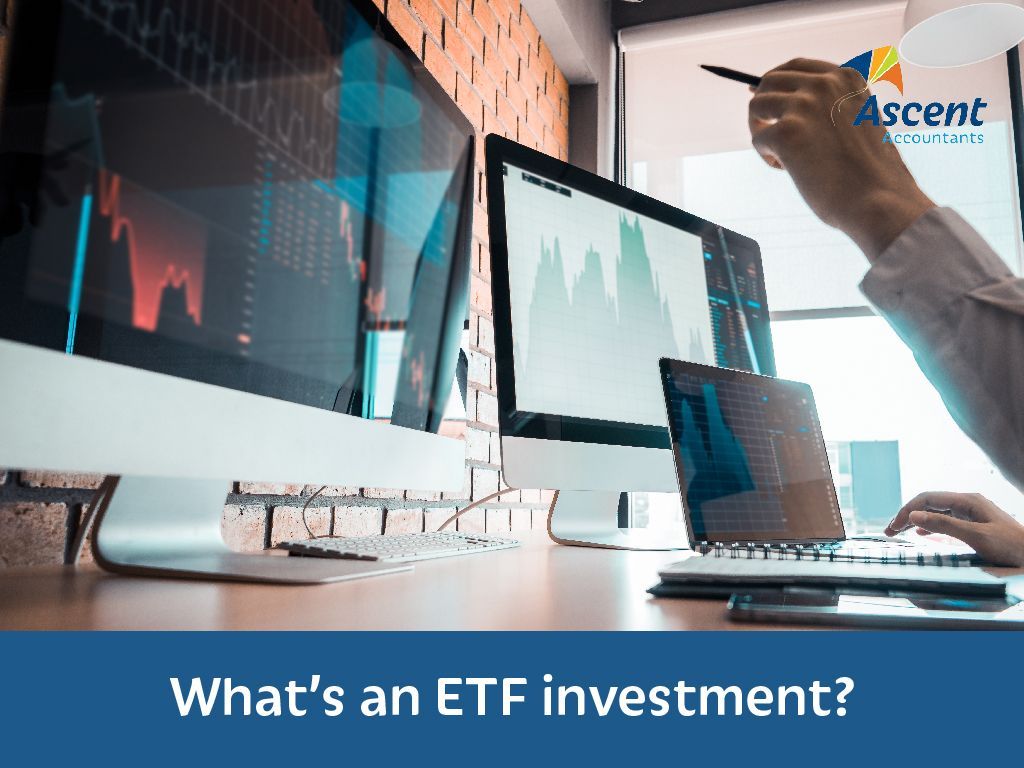What’s an ETF investment?

Exchange-traded funds (ETFs) are pooled investments. Similar to shares, ETFs buy a range of assets and then divide ownership into units for investors to buy, and trade on a stock exchange. ETFs can be a simple, cost-effective investment option that provides access to a range of diversified assets, if you know what you’re doing.
How ETFs work.
An ETF is made up of shares from a range of companies or other investments (like bonds). Unlike buying a company's share, which only gives you interest in that one company, buying a share in an ETF gives you an interest in the “basket” of different shares that the fund is invested in. When you buy an ETF, you own a share in the fund and the fund owns the underlying assets.
Low-risk, low-cost diversification is a huge benefit of ETFs. ETFs can diversify your investments quickly because they’re largely designed to invest in companies from a particular sector, country, or region. For example, instead of buying every ASX 200 company, you can purchase a single ASX Index ETF and achieve the same exposure. However, with the single purchase strategy, its managers worry about tracking the 200 individual companies that the ETF is comprised of.
Types of ETFs.
Like all investments, there are a range of pathways you can take. Here are some of the more popular ETF investments.
Equities:
Equity ETFs track indices like the S&P 500 or the ASX 200.
Fixed income:
These invest in things like US Treasuries or Australian government bonds.
Currencies:
These invest in foreign currency.
Commodities:
These are mainly gold, silver, and iron ore. However, agricultural commodities also fall into this category, such as soybeans.
Sector:
These focus on certain industries. Popular ones at the moment include technology and health care.
Regional:
They can be broken down into continents, countries, or a group of countries.
Leveraged/inverse:
These products use financial instruments to boost their investment. Leveraged ETFs, or inverse funds, are very speculative and move in the opposite direction to the index they're tracking. This strategy is much more suited to experienced traders.
How to invest in ETFs.
Just like buying and selling shares, you can buy and sell units in an ETF through a stockbroker (you’ll have to pay brokerage fees). Settlement of trades takes place two business days after you buy or sell the ETF. Another avenue you may be able to buy and sell ETF units through is directly with the ETF provider.
Thinking of investing? Sort your finances out first.
Before you invest in anything, it’s important to ensure that the investment is a measured and wise decision.
Contact us, and we can help you understand more about ETFs and how you should structure your ETF investment to minimise tax.
Need help with your accounting?








